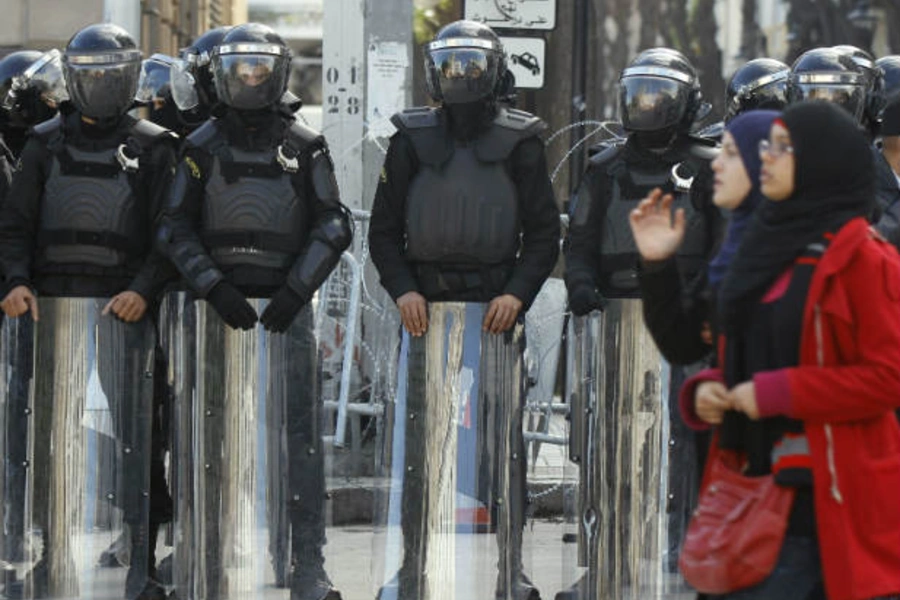Middle East Matters This Week: Algeria’s Hostage Drama, Syrian Violence, and Elections in Israel and Jordan

Significant Middle East Developments
Algeria. At least eighteen Algerian kidnappers and twelve hostages were killed in an Algerian military operation yesterday that freed six hundred and fifty hostages who had been captured when Islamist militants attacked a natural gas production complex in eastern Algeria, according to Algerian sources. Details remain sketchy, but American, European, and Japanese citizens were believed to have been amongst the hostages taken. The militants called themselves the “Signatories in Blood,” an arm of the “Masked Brigade” and were led by Mokhtar Belmokhtar, a former leader of Al Qaeda in the Islamic Maghreb. They attack was reportedly in retaliation for Western assistance to the Bamako government in Mali battling Islamist insurgents. As of this writing, the Algerian military is still sweeping the complex and surrounding areas looking for missing hostages and potential militants. A number of foreign governments have expressed frustrating with the Algerian government’s failure to consult either about the operation or the hostages. U.S. secretary of defense Leon Panetta yesterday called the information coming ou
Syria. Twin suicide car bombs exploded in Daraa today as a rocket hit a building in Aleppo killing at least twelve people, capping another deadly week in Syria. On Tuesday, forces loyal to Syrian president Bashar al-Assad reportedly stormed the village of Basatin al-Hasawiya, killing at least one hundred and six people including women and children. A government official in Damascus denied the reports entirely. Meanwhile, eighty-seven people were killed in twin blasts at Aleppo University also on Tuesday. The regime and rebels traded accusations of responsibility for the university attack.
Israel. With national elections slated for next Tuesday, Israeli prime minister Benjamin Netanyahu pledged today in an interview not to dismantle any settlements in the West Bank if reelected. Yesterday, Yair Lapid of Yesh Atid and Tzipi Livni of Hatnuah both from Likud’s left, and Naftali Bennet of Bayit Yehudi, a party to its right, all called for a national unity government yesterday. All three of the parties would be potential partners. You can read my take on the prospects and implications of the upcoming elections in an interview with Bernie Gwertzman here.
Jordan. Hundreds of Islamists, youth activists, and other opposition groups demonstrated in Amman today calling for a boycott of next Wednesday’s parliamentary elections. Meanwhile, prime minister Abdullah Ensour warned that Jordan will not accept the thousands of new Syrian refugees likely to flow across the border in the event that Syrian president Bashar al-Assad’s government collapses. Ensour added that in such a case, Jordan would deploy special forces to create safe havens for the refugees inside of Syria.
While We Were Looking Elsewhere
Iran. International Atomic Energy Agency investigators concluded two days of talks with Iranian officials yesterday with Iran refusing the IAEA’s request to revisit Parchin, a suspected nuclear-related military site southeast of Tehran. Meanwhile, while Iran agreed in principle four weeks ago to new negotiations over its nuclear program, there are no signs that agreement to any such talks is imminent. Iranian and European Union officials spoke by telephone on Monday in an inconclusive attempt to arrange a meeting for nuclear talks before the end of January.
Iraq. Thousands of Sunni Muslims rallied today to protest the Shiite-led government’s policies today in central and western Iraq. Today’s marks the fourth straight Friday of mass protests in Sunni parts of the country. A fresh wave of bombings over the last two days has killed over sixty people, mostly Shiite Muslim pilgrims.
Egypt. A video of president Mohammed Morsi making anti-Semitic statements during a speech in 2010 has resurfaced in which he then called on listeners to “nurse our children and our grandchildren on hatred for them: for Zionists, for Jews.” A spokesman for Morsi claimed that the comments were taken out of context and were meant as a criticism of Israel’s actions in Gaza. Responding to the Egyptian government’s statement, U.S. State Department spokesperson Victoria Nuland said that “From our perspective, that statement was an important first step to make clear that the type of offensive rhetoric that we saw in 2010 is not acceptable, not productive and shouldn’t be part of a democratic Egypt…That said, we look to President Morsi and Egyptian leaders to demonstrate in both word and in deed their commitment to religious tolerance and to upholding all of Egypt’s international obligations.”
Libya. Seif al-Islam, one of the late Moammar Gadhafi’s sons, yesterday appeared in Libyan court for the first time on charges of harming state security, attempting to escape prison, and insulting the nation’s new flag. The trial was immediately adjourned until May, and is separate from the case in which he is charged with crimes against humanity.
Bahrain. Police reportedly fired tear gas and stun grenades to break up protesters in Manama today. No injuries were reported.
Palestine. Hamas and Fatah negotiators agreed to an end-of-month deadline to begin implementing their previous reconciliation agreements, according to Fatah’s chief negotiator Azzam al-Ahmed. The two sides reportedly agreed to allow the Palestinian Central Election Commission resume operations in Gaza by January 30. They also reportedly agreed to talks on forming a non-partisan interim transitional government ahead of elections.
This Week in History
Sunday marked the twenty-seventh anniversary of the South Yemen civil war. On January 13, 1986, a gunfight broke out between the followers of President Ali Nasser Muhammad of South Yemen and opposition leaders in a Politburo meeting, which sparked a twelve day civil war that killed over ten thousand people. The war ended with Muhammad fleeing to Ethiopia in exile. On January 24, Haidar Abu Bakr al-Attas was appointed interim president of South Yemen and Ali Salim al-Bayd took the top position in the ruling Yemeni Socialist Party (YSP). Guided by Attas and Bayd, the YSP undertook the negotiations that brought about the unification in 1990 with the Western-aligned North Yemen.
 Online Store
Online Store
